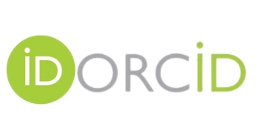Medical Education Sciences in the Evolution of Physical Rehabilitation Studies
Keywords:
physical rehabilitation; medical education; epistemology.Abstract
ABSTRACT
Introduction: The integration of sciences is currently the epistemic basis for the development of medical education, so the training provided in physical rehabilitation requires a cognitive foundation to understand its origins and premises in the process of theoretical construction.
Objective: To establish the origin and epistemic evolution of medical and therapeutic physiology in the development of medical education sciences.
Methods: The following theoretical methods were used: historical-logical, systematization, and documentary analysis. These methods made it possible to understand the origin and evolution of the physical rehabilitation studies program at Instituto Superior Universitario Bolivariano in Guayaquil, Ecuador.
Results: The study found that the combination of technologies in physical therapy not only accelerates recovery but also facilitates a more comprehensive approach to patient care, thereby contributing to improved quality of life. This element should be included in physical rehabilitation program curricula and programs.
Conclusions: The epistemic evolution of medical and therapeutic physiology has seen a shift from problem-solving-based teaching to the integration of theoretical and practical knowledge for prevention and health care in society.
Downloads
References
Valcárcel, N., & Díaz, A. A. (2021). Epistemología de las ciencias de la educación médica: sistematización cubana. La Habana: Editorial Ciencias Médicas.
Valcárcel, N., Lamas, M., Canalías, S., & Martínez, Y. (2023). Investigación y Desarrollo del Capital Humano (Primera ed.). Ecuador: Binario.
Suárez, X., & Rodríguez, M. (2023). Surgimiento de la fisioterapia en México a partir de la rehabilitación durante el siglo XX. Investigación en educación médica, 11(43). Obtenido de https://www.scielo.org.mx/scielo.php?script=sci_arttext&pid=S2007-50572022000300108
Bispo, J. P. (2022). La fisioterapia en los sistemas de salud: marco teórico y fundamentos para una práctica integral. Salud Colect, 17(17). Obtenido de https://www.scielosp.org/article/scol/2021.v17/e3709/
Colegio Oficinal de Fisioterapeutas de la Comunidad Valenciana. (2023). El fisioterapeuta de atención primaria tiene un papel trascendental para prevenir patologías crónicas y aplicar ejercicio como terapia. Obtenido de https://www.colfisiocv.com/Dia_Internacional_Atencion_Primaria_23
Valcárcel, N., Rodríguez, L., Cedeño, L., Díaz, A., Rodríguez, L., Paneque, Á., Martínez, Y. (2024). Profesionalización en las Ciencias de la Educación Médica. Editorial UBE.
Hernández, A. (2022). Pertinencia de la gestión de tecnología sanitaria para la seguridad y calidad en entornos hospitalarios. Revista Cubana de Salud Pública, 48(4). Obtenido de http://scielo.sld.cu/scielo.php?script=sci_arttext&pid=S0864-34662022000400007
Vilar, M., Salgado, M. C., Paradell, N., & Pinasch, L. (2021). Impacto de la implementación de las nuevas tecnologías para innovar y transformar la atención primaria:la enfermera tecnológica. Atención Primaria Práctica, 3(S1). Obtenido de https://www.elsevier.es/es-revista-atencion-primaria-practica-24-articulo-impacto-implementacion-nuevas-tecnologias-innovar-S2605073021000377
VIU. (2021). La importancia de la epidemiología para la salud y la sociedad. Obtenido de https://www.universidadviu.com/ec/actualidad/nuestros-expertos/la-importancia-de-la-epidemiologia-para-la-salud-y-la-sociedad
Amado, Á., Amado, D., & Yerpes, S. (2021). La Fisioterapia como disciplina e imagen profesional del fisioterapeuta. Percepción de la sociedad actual. FisioGlía, 8(3), 53-57. Obtenido de https://dialnet.unirioja.es/servlet/articulo?codigo=8056477
Rodríguez, L. (2021). Profesionalización sobre discapacidad visual para especialistas en Oftalmología. Tesis doctoral en Ciencias de la Educación Médica. Universidad de Ciencias Médicas de la Habana.
Valcárcel, N., Porto, A. G., Rodríguez, C. R., Cruz, M. d., Molina, Y., & Rodríguez, Y. (2019). La educación médica: Origen y evolución como ciencia. Revista Cubana de Tecnología de la Salud, 10(1), 89-100. Obtenido de https://revtecnologia.sld.cu/index.php/tec/article/view/1428/0
Da Silva, M. R., Ferretti, F., & Fernandes, P. (2023). Atividades práticas no processo de formação em Fisioterapia no Brasil e em Portugal: olhar de docentes e gestores. interface, 27(e210817). Obtenido de https://www.scielo.br/j/icse/a/5sgRdPGYwmvSGQfTqDJxJzj/?lang=pt&format=pdf
Barbosa, M. C., Marques, I. L., Rezende, G., & Dallasta, I. (2023). Tecnologias da informação e comunicação no ensino da Fisioterapia, Terapia. Revista da Avaliação da Educação Superior, 28(e023014), 1-17.
Tejeda, X., Alpuche, A., Aburto, M. B., & Gutiérrez, C. (2023). Calidad de los casos de aprendizaje basado en problemas empleados en educación fisioterapéutica. Investigación en educación médica, 11(44). Obtenido de https://www.scielo.org.mx/scielo.php?script=sci_arttext&pid=S2007-50572022000400067&lang=es
Cushpa, M. R., Silva, L. G., Casco, C. M., & Caiza, M. A. (2024). Metodologías de enseñanza para el aprendizaje significativo de la fisiología. Imaginario Social, 7(1), 305-316. Obtenido de https://revista-imaginariosocial.com/index.php/es/article/view/167/309
Downloads
Published
How to Cite
Issue
Section
License
Copyright (c) 2025 Cecilia Verónica Gaona-Verduga, Norberto Valcárcel Izquierdo, Kamelia Espinosa Martínez, Tamara Ivet Espinosa Hernández

This work is licensed under a Creative Commons Attribution-NonCommercial 4.0 International License.


